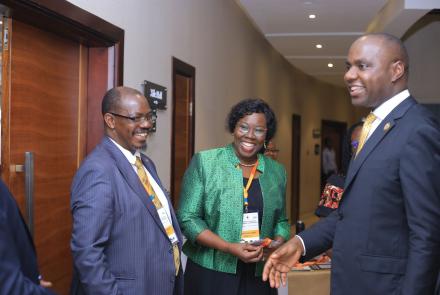By Abraham Malinga
Practitioners have welcomed the Uganda Revenue Authority (URA)’s move to operationalisation of Section 16(5) of the Tax Procedures Code Act (TPCA) and urge URA to promptly enforce that section to increase tax compliance and good practices.
Section 16(5) of the TPCA requires a taxpayer with an annual turnover of UGX 500 million and above to furnish with the taxpayer’s return of income, audited financial statements prepared by an accountant registered by the Institute of Certified Public Accountants of Uganda (ICPAU). The financial statements must be audited by an auditor who is registered and licensed to practise accountancy by ICPAU.
While practitioners appreciate URA’s efforts, they claim that much remains to be done to ensure the actualisation of the law. The practitioners advise URA to collaborate with ICPAU to ensure smooth and easy identification of Accountants and Auditors reflected or referred to in Section 16(5) of TPCA.
The practitioners were meeting at their annual Practitioners Forum on 16 January 2025 at the Imperial Royale Hotel.
The Secretary/CEO of the Institute, CPA Derick Nkajja noted the practitioners’ concerns and assured them of the ICPAU’s continued support. He noted the need for collaborative efforts in addressing the present challenges.
"Thank you for your contributions towards compliance with the law. Let us continue to work together to build a stronger, more credible accountancy profession that supports and drives Uganda’s development," said Nkajja.
While delivering a presentation on accountancy practice updates, CPA Michael Tugyetwena, a Partner at Springs & Tugye Associates emphasised the urgency for agility and compliance with the latest auditing standards, most notably, the International Standard on Auditing for Audits of Financial Statements of Less Complex Entities (ISA for LCEs), International Standard on Sustainability Assurance (ISSA) 5000, General Requirements for Sustainability Assurance Engagements, and ISQM 2: Engagement Quality Reviews.
For guidance on application, he urged practitioners to utilise several technical resources freely available on the ICPAU website and that of the International Federation of Accountants (IFAC).
Tugyetwena tipped practitioners on the balance between harnessing technology and preserving professional ethics, urging them to adopt technologies cautiously but proactively.
“Balance adoption, realise the changing role, ensure skilling, but beware of issues around integrity, confidentiality and data protection,” he advised.
He further advised accounting firms to embrace audit of their own operations, noting benefits such as regulatory and investor compliance, quality assurance and independence, assessing technological proficiency, and aligning with organisational needs.
The Practitioners Forum is a flagship event for practising accountants and senior staff of accounting firms. The forum is designed to provide practitioners with opportunities for continuous learning and experience sharing on emerging trends and recent regulatory obligations related to their work. Over 160 participants attended the 2025 Practitioners Forum.
END

